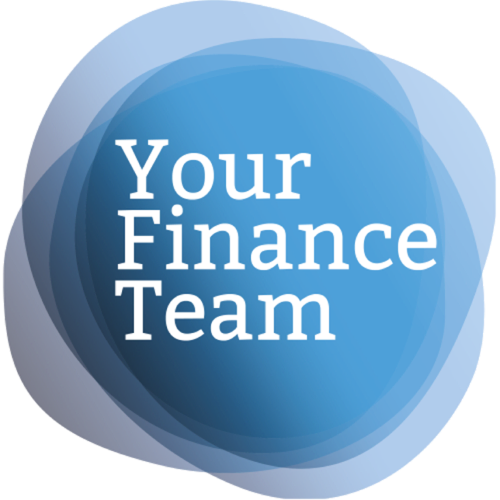If you own a limited company then you are entitled to take cash in the form of dividends and whilst that can be a very tax-efficient form of directors pay there are some things you need to be aware of.
In this post, we’re looking at the issue of dividends and particularly at the amount you can take out of your company and what the pitfalls may be. We’re going to cover;
- What are dividends?
- When can you pay dividends?
- What is the dividend tax allowance?
- What dividends should you pay yourself?
- How should you pay dividends?
- Don’t guess with dividends
What are dividends?
Let’s start at the beginning – what actually are dividends?
When a limited company makes a profit it produces something called ‘reserves’. Essentially this is an amount of money that it can use to invest in the business or to pay back to shareholders in the form of dividends.
Dividends are paid out in accordance with the terms of the Articles of Association and shareholders agreements.
In most cases, shares will be ordinary and will have both voting rights and the right to share in any profits that the company makes (hence the term ‘shareholder’) and these will be equal shares.
In some cases, the shares may have different rights. For example, some may only have voting rights or some may not have voting rights but will have a share in the profits.
If a company decides to pay a dividend (sometimes called ‘declaring’ a dividend) then shareholders will receive a payment equal to the number of shares they have.
So if a company has 1,000 shares issued and declares a dividend of £1 per share then someone with 100 shares will get £100.
If you are in any doubt then you should take look at your shareholder agreement or articles of association or call us and we’ll be happy to help.
When can you pay dividends?
There is no set rule in terms of ‘when’ you can pay dividends and the decision of how much to pay and when to pay it is down to the directors.
Often companies will only declare a dividend after their books are closed for the year. That way they know how well the business has done, how much cash they want to reinvest and how much is available for distribution as dividends.
Very large businesses with institutional investors will usually declare an interim dividend part way through the year and then a final dividend when the books are closed.
Many contractors give themselves a monthly dividend as a top-up to their main PAYE salary.
So the decision of when to pay is very much down to the directors of the company.
There are a couple of points to note here though.
If the Articles of Association set a minimum level of reserves then that will alter the ability of the directors to pay a dividend.
Importantly if your company has no distributable reserves then it can’t pay a dividend.
So there may be restrictions on whether or not you can pay a dividend in practice, even if there isn’t a legal restriction as to when you pay.
What is the dividend tax allowance?
Every taxpayer in the UK gets a dividend tax allowance. For the year 2021/22 this is set at £2,000 which means that you can take up to £2,000 of dividends tax-free.
But be aware that this is an allowance for all dividends and not per company, so if you have investments in different businesses and receive multiple payments then you need to apply the dividend tax allowance to the aggregate of all of them.
Over the £2,000 allowance then you will pay tax on any dividends received which varies depending upon your highest tax rate for the year in question.
So the general advice here is to make sure you pay yourself at least £2,000 to use up the dividend tax allowance.
What dividends should you pay yourself?
This is a question that comes up frequently, especially with our contractor clients.
In truth, it’s not possible to give a definitive answer here because everyone’s tax position is different but there are some general points to keep in mind.
Dividends are not subject to National Insurance Contributions so they are an efficient way to pay yourself but you shouldn’t take money totally in dividends.
It’s important to make sure you do make monthly NIC payments so that you maintain your credits which entitle you to state benefits such as pensions.
Also, dividends aren’t taken into account when calculating the amount you are allowed to pay into a pension plan, so the more you take in dividends, the less you can pay into a tax-efficient retirement vehicle.
And whilst they are tax-efficient, dividends are by no means tax-free, so please remember that there will be some tax to pay when it comes around to self-assessment time.
We normally suggest to our clients that they use up their personal tax allowance in PAYE salary, which attracts NIC contributions, make contributions into a pension plan and then top up their income with dividends.
From the company point of view, it is important to remember that you should keep some cash in the business to allow for future investment so it isn’t always a good idea to withdraw all of your cash in the form of a dividend.
How should you pay dividends?
Theoretically, you can pay your dividends in any form you like.
You could pay it in cash, gold or even goods to the value of the dividend.
But in general, for smaller companies, there are two ways to pay the dividend.
The first is to make a simple bank transfer like any other payment. It’s a sensible idea to make the payment separately from any other transfer such as a salary payment as this helps to avoid questions later.
The second way is to make a credit to a directors loan or current account which then leaves the cash in the business but allows the director to withdraw it when they like. But do remember that dividends are taxed at the point they become payable and not when they are actually paid.
The important point with dividends is to make sure that you have a full paper trail, including the minutes of the board meeting where you declared the dividend so that you can show why you got the payment.
You will also need to provide each shareholder with a dividend voucher showing the payment made.
Also remember that if you have other shareholders in the company then they should be treated equally. You can’t declare a dividend and only pay it to some shareholders (such as an owner-director). If other people own shares then they should get the same amount per share as you are getting.
Don’t guess with dividends
There’s an overriding message here and it is that it is foolish to guess when it comes to dividends.
A director that declares an incorrect dividend could find themselves breaking company law or contravening the tax rules opening themselves and their business up to penalties and interest.
As we noted in an earlier section, everyone has a different tax position and something that would be perfectly legal and tax-efficient for one person wouldn’t be right for another. That’s why it is also important to ignore other people’s tax arrangements.
Instead, it is always best to get qualified, experienced help with tax planning and to do so before the start of the tax year.
That way you can put in place measures to make the most of your allowances and pay yourself the right dividends making sure you don’t end up with a nasty surprise in the form of a tax bill at the end of the year!
Call us now for more information about our tax planning services and let us show you how we can help minimise your tax bill.

